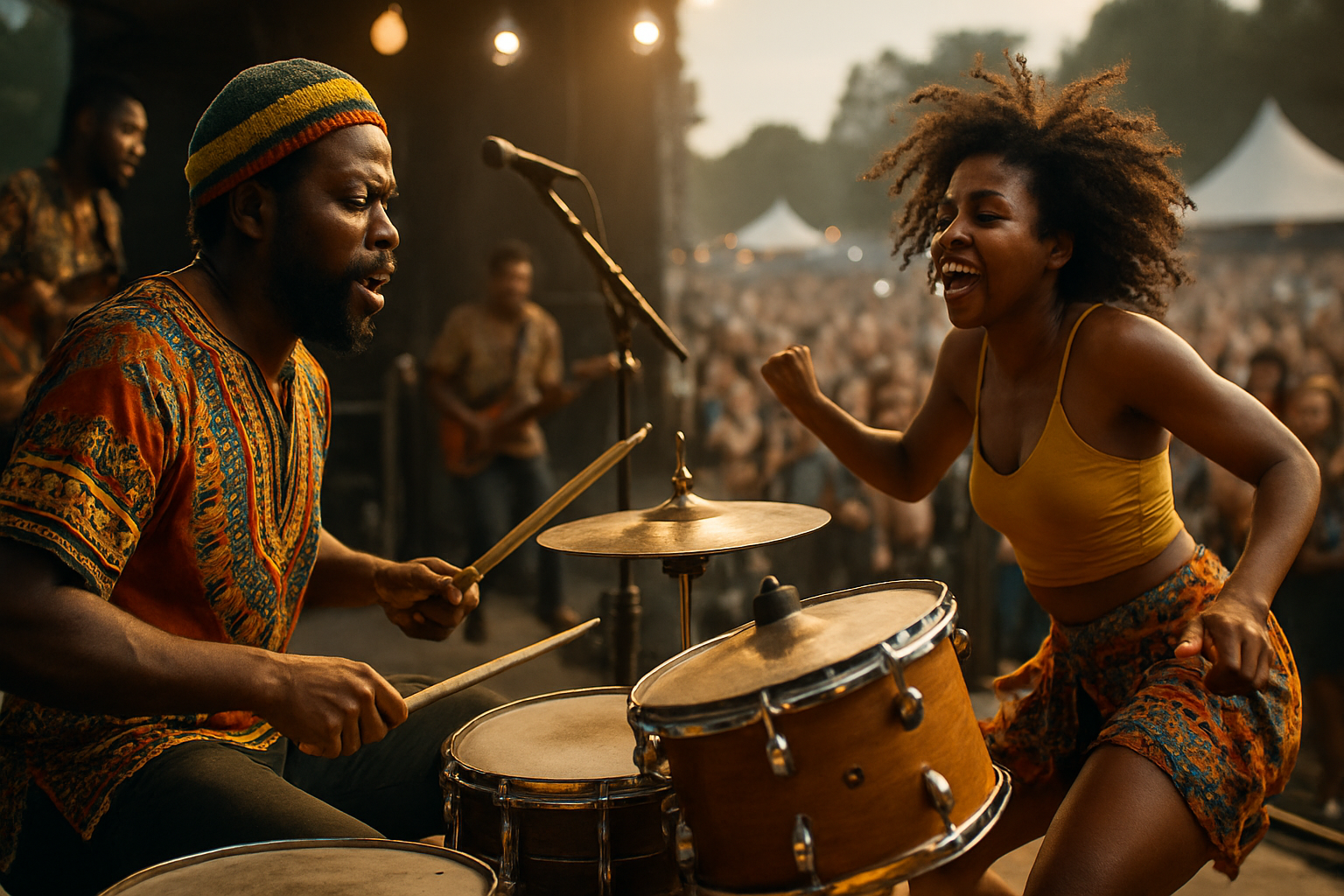Music Festivals: Your Complete Guide to Festival Culture
Music festivals bring together artists, audiences, and diverse genres for live performances. Often hosted outdoors, they feature stages, food vendors, and cultural activities. Festivals vary in size from local events to internationally recognized gatherings.

What Are Music Festivals and Why Do They Matter
Music festivals are organized events featuring multiple musical performances across various stages over one or more days. These gatherings range from intimate local celebrations to massive international spectacles attracting hundreds of thousands of attendees. They serve as cultural hubs where music, art, food, and community converge, creating shared experiences that often become lifelong memories for participants.
The significance of music festivals extends beyond entertainment value. They contribute substantially to local economies, with major festivals generating millions in revenue for host cities through tourism, hospitality, and retail spending. Additionally, festivals provide crucial exposure opportunities for emerging artists while allowing established performers to connect with audiences in intimate, outdoor settings that differ significantly from traditional concert venues.
Essential Music Festivals Guide for First-Time Attendees
Planning your first festival experience requires careful consideration of several key factors. Begin by researching different festival types, from genre-specific events like jazz or electronic music festivals to multi-genre celebrations that offer diverse musical experiences. Consider the festival’s location, duration, and overall atmosphere to ensure it aligns with your preferences and comfort level.
Preparation is crucial for festival success. Essential items include comfortable footwear, weather-appropriate clothing, portable phone chargers, and sufficient hydration supplies. Many festivals offer camping options, which require additional gear but provide immersive experiences and cost savings on accommodation. Review the festival’s policies regarding prohibited items, entry procedures, and available amenities before attending.
Budget planning should encompass more than just ticket prices. Factor in transportation, accommodation, food, beverages, and merchandise costs. Many festivals offer payment plans for tickets and various package deals that can provide better value than individual purchases.
Music Festivals Information: Types and Genres
The festival landscape encompasses numerous formats and musical styles, each offering distinct experiences. Genre-specific festivals focus on particular musical styles, such as country, rock, electronic dance music, or classical music. These events typically attract dedicated fan bases and feature artists exclusively from their chosen genre, creating cohesive musical journeys.
Multi-genre festivals present diverse lineups spanning multiple musical styles, appealing to broader audiences and offering opportunities to discover new artists and genres. These events often feature different stages dedicated to specific genres, allowing attendees to curate their own experiences while exploring unfamiliar musical territories.
Boutique festivals emphasize unique experiences over massive scale, often featuring carefully curated lineups, distinctive venues, and enhanced amenities. These events typically have smaller capacity limits, creating more intimate atmospheres and often incorporating additional elements like art installations, culinary experiences, or educational workshops.
Planning Your Festival Experience
Successful festival attendance begins with thorough research and strategic planning. Start by examining lineup announcements, stage schedules, and venue layouts to identify must-see performances and plan your daily itineraries. Many festivals release mobile applications providing real-time schedule updates, maps, and important announcements.
Accommodation options vary significantly based on festival location and duration. Urban festivals often allow attendees to stay in nearby hotels or utilize public transportation, while destination festivals may offer on-site camping or require advance booking at local accommodations. Consider proximity to venue entrances, transportation availability, and group size when making accommodation decisions.
Food and beverage planning can significantly impact your festival budget and experience quality. Many festivals feature diverse food vendor selections, though prices are typically higher than standard restaurant rates. Some events allow outside food and beverages, while others restrict these items. Review specific policies and consider dietary restrictions when planning.
| Festival Type | Duration | Average Cost Range | Key Features |
|---|---|---|---|
| Local/Regional | 1-2 days | $50-$200 | Community-focused, emerging artists |
| Major Multi-Genre | 3-4 days | $200-$500 | Diverse lineups, multiple stages |
| Destination/Premium | 3-7 days | $300-$1,500+ | Luxury amenities, exclusive experiences |
| Genre-Specific | 2-3 days | $100-$400 | Specialized music focus, dedicated audiences |
Prices, rates, or cost estimates mentioned in this article are based on the latest available information but may change over time. Independent research is advised before making financial decisions.
Safety and Practical Considerations
Festival safety requires awareness of both personal security and health considerations. Stay hydrated throughout events, particularly during summer festivals or in warm climates. Establish meeting points with friends in case of separation, and keep important contact information easily accessible. Familiarize yourself with venue layouts, including emergency exits and medical stations.
Weather preparedness is essential, as outdoor festivals proceed regardless of conditions in most cases. Monitor forecast predictions and pack appropriate gear, including rain protection, sun protection, and layers for temperature variations. Many festivals provide weather-related updates through their communication channels.
Personal belongings security demands attention in crowded festival environments. Use bags with secure closures, avoid bringing valuable items unnecessarily, and consider using lockers when available. Keep important documents and emergency cash in separate, secure locations.
Music festivals represent more than entertainment events; they embody cultural movements that bring communities together through shared musical experiences. Whether attending intimate local gatherings or international destination festivals, proper preparation enhances enjoyment while ensuring safety and comfort. Research thoroughly, plan strategically, and remain open to discovering new artists and connecting with fellow music enthusiasts in these unique celebratory environments.




